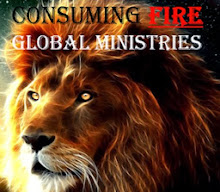Homeland Security Enlists Clergy to Quell Public Unrest if Martial Law Ever Declared
 | |
 | |
| | |
Could martial law ever become a reality in America? Some fear any nuclear, biological or chemical attack on U.S. soil might trigger just that. KSLA News 12 has discovered that the clergy would help the government with potentially their biggest problem: Us.
Charleton Heston's now-famous speech before the National Rifle Association at a convention back in 2000 will forever be remembered as a stirring moment for all 2nd Amendment advocates. At the end of his remarks, Heston held up his antique rifle and told the crowd in his Moses-like voice, "over my cold, dead hands."
While Heston, then serving as the NRA President, made those remarks in response to calls for more gun control laws at the time, those words live on. Heston's declaration captured a truly American value: An over-arching desire to protect our freedoms.
But gun confiscation is exactly what happened during the state of emergency following Hurricane Katrina in New Orleans, along with forced relocation. U.S. Troops also arrived, something far easier to do now, thanks to last year's elimination of the 1878 Posse Comitatus act, which had forbid regular U.S. Army troops from policing on American soil.
If martial law were enacted here at home, like depicted in the movie "The Siege", easing public fears and quelling dissent would be critical. And that's exactly what the 'Clergy Response Team' helped accomplish in the wake of Katrina.
Dr. Durell Tuberville serves as chaplain for the Shreveport Fire Department and the Caddo Sheriff's Office. Tuberville said of the clergy team's mission, "the primary thing that we say to anybody is, 'let's cooperate and get this thing over with and then we'll settle the differences once the crisis is over.'"
Such clergy response teams would walk a tight-rope during martial law between the demands of the government on the one side, versus the wishes of the public on the other. "In a lot of cases, these clergy would already be known in the neighborhoods in which they're helping to diffuse that situation," assured Sandy Davis. He serves as the director of the Caddo-Bossier Office of Homeland Security and Emergency Preparedness.
For the clergy team, one of the biggest tools that they will have in helping calm the public down or to obey the law is the bible itself, specifically Romans 13. Dr. Tuberville elaborated, "because the government's established by the Lord, you know. And, that's what we believe in the Christian faith. That's what's stated in the scripture."
Civil rights advocates believe the amount of public cooperation during such a time of unrest may ultimately depend on how long they expect a suspension of rights might last.
From: The Revolutionist His Bondservant Forever In Christ Jesus
Charleton Heston's now-famous speech before the National Rifle Association at a convention back in 2000 will forever be remembered as a stirring moment for all 2nd Amendment advocates. At the end of his remarks, Heston held up his antique rifle and told the crowd in his Moses-like voice, "over my cold, dead hands."
While Heston, then serving as the NRA President, made those remarks in response to calls for more gun control laws at the time, those words live on. Heston's declaration captured a truly American value: An over-arching desire to protect our freedoms.
But gun confiscation is exactly what happened during the state of emergency following Hurricane Katrina in New Orleans, along with forced relocation. U.S. Troops also arrived, something far easier to do now, thanks to last year's elimination of the 1878 Posse Comitatus act, which had forbid regular U.S. Army troops from policing on American soil.
If martial law were enacted here at home, like depicted in the movie "The Siege", easing public fears and quelling dissent would be critical. And that's exactly what the 'Clergy Response Team' helped accomplish in the wake of Katrina.
Dr. Durell Tuberville serves as chaplain for the Shreveport Fire Department and the Caddo Sheriff's Office. Tuberville said of the clergy team's mission, "the primary thing that we say to anybody is, 'let's cooperate and get this thing over with and then we'll settle the differences once the crisis is over.'"
Such clergy response teams would walk a tight-rope during martial law between the demands of the government on the one side, versus the wishes of the public on the other. "In a lot of cases, these clergy would already be known in the neighborhoods in which they're helping to diffuse that situation," assured Sandy Davis. He serves as the director of the Caddo-Bossier Office of Homeland Security and Emergency Preparedness.
For the clergy team, one of the biggest tools that they will have in helping calm the public down or to obey the law is the bible itself, specifically Romans 13. Dr. Tuberville elaborated, "because the government's established by the Lord, you know. And, that's what we believe in the Christian faith. That's what's stated in the scripture."
Civil rights advocates believe the amount of public cooperation during such a time of unrest may ultimately depend on how long they expect a suspension of rights might last.
From: The Revolutionist His Bondservant Forever In Christ Jesus


0 Comments:
Post a Comment
<< Home